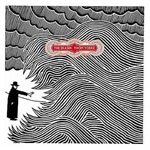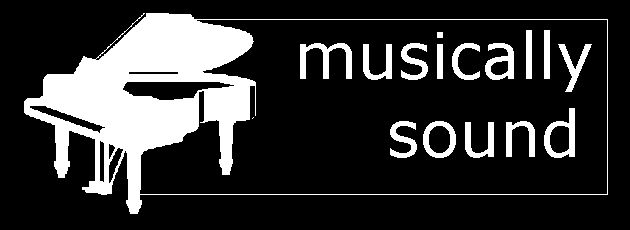 Thom Yorke
Thom YorkeThe Eraser
[Electronic]
At first, the idea of a Radiohead fan reviewing a Thom Yorke album may well seem a mite daft. You can bet I’ll be a biased fan-boy, right? Well, the truth is, if you’re not a Radiohead fan then there are only three reasonable possibilities: (a) you detest music (b) you detest popular music (c) your favourite band gets good reviews in Kerrang magazine.
Thom’s boys have been responsible for some of the most rewarding, innovative, enduring, mind-bending, danceable and downright catchy tunes of the last fifteen years. They are the most critically acclaimed band since the Beatles. They had a number one album without releasing any singles. Tickets for their tours sell out in minutes yet their sets notoriously emit some of their most popular songs. They are name-dropped by everyone from David Cameron to Graham Le Saux. They make experimental jazz wankery appealing for chrissakes! To put it simply, if you’re not a Radiohead fan to some degree, you just don’t appreciate good music.
To say The Eraser has been shrouded in secrecy would be like calling the MI5 a bit insular – it was only announced in May and leaked on the internet soon after. Compared with the immense pressure traditionally associated with Radiohead releases (Yorke described the post-production work on Ok Computer as “utterly terrifying”, the follow-up’s recording sessions almost split the band), The Eraser has been a breeze for the Radiohead marketing machine. A few cryptic adverts, a cryptic website, cryptic blog posts from Thom – we are effectively back to the deliberately obtuse, non-promotional strategy of Kid A. And there is good reason for it.
Unlike the bombast of Ok Computer or its stadium-friendly predecessor, The Bends, The Eraser’s primary focus is the minimal, claustrophobic laptop sound that Thom has been obsessing over for a number of years. It is a sound that can be recognised in previous Radiohead songs (“The Gloaming”, “Packt Like Sardines In A Crushd Tin Box”), yet to say The Eraser sounds like a Radiohead record would be wholly fallacious. The voice we all know and love is obviously on show, but this is clearly Thom’s own work, and it is because of this that his debut “solo” effort occasionally falls short of the impeccably high standards we have become accustomed to.
One of Radiohead’s biggest strengths has always been to play to each band member’s individual strengths. For example, Jonny Greenwood can play every instrument under the sun, so why not let him? Phil Selway is an exceptional drummer, so why make him behave like a caveman banging a big stick a la Meg White when he can beat out incredible rhythmic patterns? The Eraser, therefore, lacks the warmth of Amnesiac or the textures of Ok Computer, yet is nevertheless similarly engrossing.
The majority of songs are built around a single idea, honed to perfection by the stellar production work of long-time collaborator Nigel Godrich. The title track begins with off-key piano chords and a soft yet urgent beat, building into a chilling chorus with Yorke singing choral backing vocals behind his own words (“The more you try to erase me / The more that I appear”). An incredibly tight arrangement, it is immediatedly listenable.
“Analyse” continues the confident start with skittering beats and a gentle piano melody, topped off with another strong vocal performance. “It gets you down” muses Thom as he successfully aims for a similar reaction in the listener, “There’s no time to analyse / To think things through / To make sense”. On first listen you may well roll your eyes and reach for the irony file. Perseverance reaps great rewards here, however.
Unfortunately, the same cannot be said for “The Clock”. As well as recycled Aphex Twin electronics, part of the melody is made up of Yorke’s obscure warbling that accompanies the intro to live renditions of “The National Anthem”. It might sound good on paper, but it really doesn’t resonate on record. Of course, the consistently outstanding vocal work carries the track well enough; the musical backing here just does nothing to get the pulse racing.
Perhaps the most well-known song on The Eraser is “Black Swan”, given its prominence on the television adverts, and it has been used to promote the album with good reason. Yorke repeatedly notes a relationship is “fucked up” in the least obnoxious way possible, over a reserved bass line and the funkiest beats on the album. “People get crushed like biscuit crumbs / And lay down in the bitumen” also happens to be my favourite lyric on the record.
The next two songs - “Skip Divided” and “Atoms For Peace” - offer mixed, if interesting, results. The former is easily the weakest song on the album, going seriously overboard with the experimentation. Yorke fails to use his voice to maximum effect, singing a low, monotone vocal as overbearing synth noise overwhelms any intended anger in the words. The latter, on the other hand, sets the album up for a strong closing sequence. If singing about eating an “artichoke heart” could ever be described as beautiful, then Thom Yorke would be one of a rare handful able to pull it off. An astounding falsetto overcomes the lyrical inadequacies with ease and, backed by a delightful tune reminiscent of Boards of Canada, the song is a winner.
“And It Rained All Night” could be described as the strongest of the truly experimental songs on offer here. Bass hums enticingly beneath the “click click clack” of two drumsticks and wobbly synth. Yorke even raps some of the words (“It’s relentless, invisible, indefatigable, indisputable, undeniable”) to the flow of the music, recalling the verses of “A Wolf At The Door” which were so highly acclaimed.
While not among the most impressive songs, “Harrowdown Hill” (a commentary on the suicide of government official David Kelly) is certainly competent. A fidgety bass line leads the way for most of the duration, accompanying the rant effectively. “I can’t take the pressure / No-one cares if you live or die” is as direct as Yorke’s words come and characterises the majority of the songs here, opting for a more forthright theme rather than the traditional cut ‘n’ paste lyrical style of Radiohead’s experimental tunes.
Closer “Cymbal Rush”, much like the rest of this release, would not fit on any Radiohead record. However, the difference is that it can easily stand alongside Radiohead’s best work and is a superb way for Yorke to put a cap on his solo career, at least for the time being. Incredibly urgent beats synchronise with a surging piano chord as video game noises phase in and out of the background. The success of this song is that it reaches its peak so late on (four minutes into a five minute song) and ends while still growing in momentum. The genius is that it immediately makes you want to hear The Eraser all over again. If the song reached its rightful conclusion at around the eight minute mark, it wouldn’t have anywhere near the same effect. Instead, the listener is enticed by the prospect of further recordings from a man who is unarguably one of the leading lights in modern music.
If The Eraser is indeed only the starting point many believe it to be then, faults aside, it is potentially the start of something wonderful. 81


